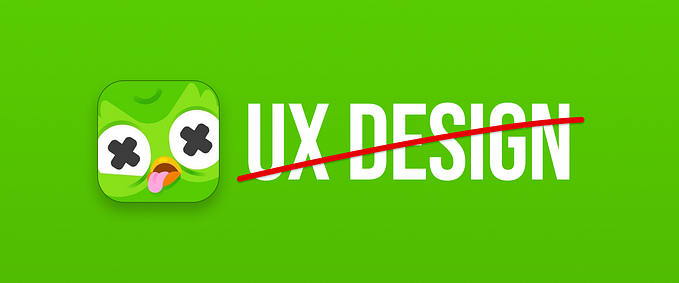Why we should hire generalist junior designers and why we are doing it wrong
In recent years, we keep getting messages that companies are looking to hire T-shaped, X-shaped or even broken-comb-shaped (is that even a word?) professionals. Although that might be a bit confusing, all of those terms broadly relate to generalists — people who obtained skills and knowledge from several fields or disciplines rather than one, as opposed to specialists.
What seems to have changed the landscape dramatically is David Epstein’s book ‘Range: Why Generalists Triumph in a Specialized World’ building on top of numerous studies in sports, music, science, and other fields — and brilliantly demonstrating what the benefit of being a generalist is and when it plays a role. In this article, I build on Epstein’s arguments and claim that UX design industry should hire generalists. However, I recognize that job descriptions for UX designers follow some negative trends that create a wrong impression for those who apply.
Generalists and Specialists
Eventually, Epstein claims that while deliberate practice in one field is important to achieve success, being exposed to other areas early on really gives one a great advantage. He even makes Malcolm Gladwell give up his 10,000 hours of practice rule!

At the same time, there is a popular opinion that there is no single truth and both specialists’ and generalists’ success depends heavily on the environment. Epstein has an answer for that — for him, there is no ‘should I be a generalist or specialist’ dilemma but rather: which kind of industries would actually benefit from hiring generalists and which — specialists?
Things like chess or golf, he says, are largely based on repetitive pattern recognition, so deliberate practice is more useful than knowledge across different fields. On the contrary, in most fields problem solving is not that easy — that’s when generalists come into play. Then which kind of industry is UX design?
Why UX Designer should be a generalist
In ‘Range’, Epstein offers an easy way to identify industries where generalists thrive — those that deal with so-called wicked problems. In short, such problems cannot be solved that easily because there are many unknowns and thus infinite solutions. Here is where the problem solver should use all the creativity and skills acquired across fields of knowledge — different approaches help you reveal more unknown variables.

If you are a designer, you definitely always deal with wicked problems. There is just no single explanation of why users stop using your product, just as there is no unique solution to how to get them back. We are required to apply a variety of skills and communication styles, knowing how to be more persuasive when advocating for user needs and more caring when listening to users. There is just no way to grow to be a successful UX designer without learning across fields.
Designers don’t have to stay generalists until the end of their careers (although we might), also because we eventually become more passionate about one or some of our strengths (becoming those T-shaped designers, or whatever we call them). But wait: does it mean that at least when hiring a junior designer, companies should be looking for generalists? Then what the hell is wrong with the job descriptions?
So what’s wrong with hiring (junior) designers?
There has been lots of criticism of what ridiculous things companies often require from designer job applicants — ranging from job titles to required skills. We are often asked to:
- have 3, 5, 10 years of experience e.g. with SaaS product. How does the number of years you spent at an SaaS company define your ability to solve wicked problems with any other product, even if SaaS?
- have 3, 5, 10 years of experience e.g. with Figma. How does being an expert user of some specific tool make you a better designer? Not even mentioning that most of the widely used tools in UX design don’t exist for that long.
- have a degree in Design/Cognitive Science/HCI and so on. So companies actually expect us to have specialized that early on, back when we were starting our studies?
- have done everything that UX design ‘definition’ can only fit — just look at this analysis of job postings to see how many different skills are expected from an average designer. It seems like companies have interpreted wrong what it means to be a generalist, and simply try to fill more positions with less people.

I know many people looking for a job as a junior UX designer who get very discouraged by such requirements. If we really want to attract great hires, we should not be spreading the wrong message. A good designer should be able to explore a variety of all possible solutions to wicked problems, not to demonstrate a variety of all possible skills the job description can only fit.
Generalists thrive in UX design because it is a realm of wicked problems and infinite approaches. However, job postings that require designers to have x years of experience with specific roles, tools or kinds of products broadcast a different message: they want you to be a specialist.
While this is not the only problem that exists in design industry with hiring juniors, I find it very critical, considering that we encourage the young generation of designers to take more degrees, learn a limited set of tools and specialize — while we actually should praise diverse backgrounds and cross-discipline skills.






